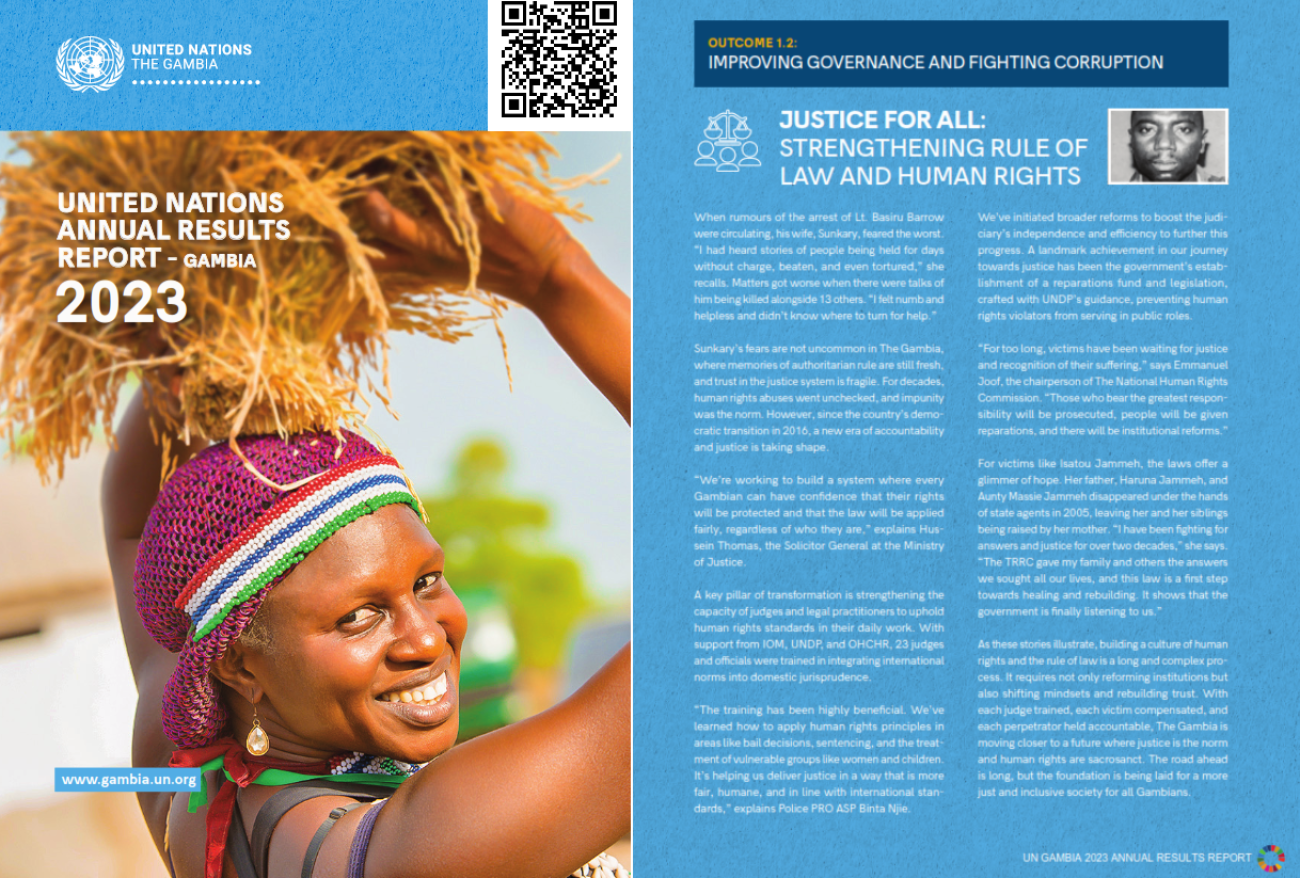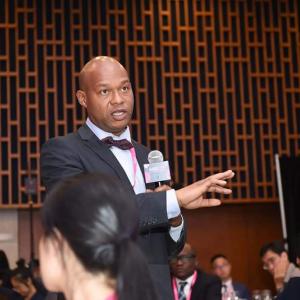JUSTICE FOR ALL: STRENGTHENING RULE OF LAW AND HUMAN RIGHTS
When rumours of the arrest of Lt. Basiru Barrow were circulating, his wife, Sunkary, feared the worst.
“I had heard stories of people being held for days without charge, beaten, and even tortured,” she recalls. Matters got worse when there were talks of him being killed alongside 13 others. “I felt numb and helpless and didn’t know where to turn for help.”
Sunkary’s fears are not uncommon in The Gambia, where memories of authoritarian rule are still fresh, and trust in the justice system is fragile. For decades, human rights abuses went unchecked, and impunity was the norm. However, since the country’s democratic transition in 2016, a new era of accountability and justice is taking shape.
“We’re working to build a system where every Gambian can have confidence that their rights will be protected and that the law will be applied fairly, regardless of who they are,” explains Hussain Thomas, the Solicitor General at the Ministry of Justice.
A key pillar of transformation is strengthening the capacity of judges and legal practitioners to uphold human rights standards in their daily work. With support from IOM, UNDP, and OHCHR, 23 judges and officials were trained in integrating international norms into domestic jurisprudence.
“The training has been highly beneficial. We’ve learned how to apply human rights principles in areas like bail decisions, sentencing, and the treatment of vulnerable groups like women and children. It’s helping us deliver justice in a way that is more fair, humane, and in line with international standards,” explains Police PRO ASP Binta Njie.
We’ve initiated broader reforms to boost the judiciary’s independence and efficiency to further this progress. A landmark achievement in our journey towards justice has been the government’s establishment of a reparations fund and legislation, crafted with UNDP’s guidance, preventing human rights violators from serving in public roles.
“For too long, victims have been waiting for justice and recognition of their suffering,” says Emmanuel Joof, the chairperson of The National Human Rights Commission. “Those who bear the greatest responsibility will be prosecuted, people will be given reparations, and there will be institutional reforms.”
For victims like Isatou Jammeh, the laws offer a glimmer of hope. Her father, Haruna Jammeh, and Aunty Massie Jammeh disappeared under the hands of state agents in 2005, leaving her and her siblings being raised by her mother.
“I have been fighting for answers and justice for over two decades,” she says. “The TRRC gave my family and others the answers we sought all our lives, and this law is a first step towards healing and rebuilding. It shows that the government is finally listening to us.”
As these stories illustrate, building a culture of human rights and the rule of law is a long and complex process. It requires not only reforming institutions but also shifting mindsets and rebuilding trust. With each judge trained, each victim compensated, and each perpetrator held accountable, The Gambia is moving closer to a future where justice is the norm and human rights are sacrosanct. The road ahead is long, but the foundation is being laid for a more just and inclusive society for all Gambians.




